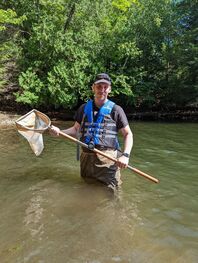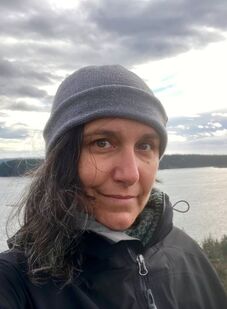WWEW Committee Board Members
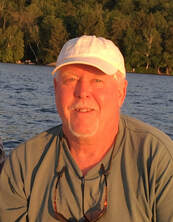
Jim Prince - WWEW Chair
Jim Prince has been a regular visitor to Haliburton for the past 30 years and his family has owned a
cottage on Kennisis Lake for the past 20 years. Jim is currently the Vice President, Stewardship Director
and Sailing Coordinator for the Kennisis Lake Cottage Owners’ Association and was instrumental in
developing and implementing The KLCOA Lake Plan. Jim has taken an active interest in preserving the
health of the lakes and water sheds in Haliburton with a focus on community education in the areas of
water quality testing, healthy septic systems, maintaining natural shorelines and shoreline restoration.
Jim spent most of his working career in the electric utility business and currently operates an
engineering consulting company that supports Canadian electric utilities in the area of regulatory
compliance for plant inspections.
Jim Prince has been a regular visitor to Haliburton for the past 30 years and his family has owned a
cottage on Kennisis Lake for the past 20 years. Jim is currently the Vice President, Stewardship Director
and Sailing Coordinator for the Kennisis Lake Cottage Owners’ Association and was instrumental in
developing and implementing The KLCOA Lake Plan. Jim has taken an active interest in preserving the
health of the lakes and water sheds in Haliburton with a focus on community education in the areas of
water quality testing, healthy septic systems, maintaining natural shorelines and shoreline restoration.
Jim spent most of his working career in the electric utility business and currently operates an
engineering consulting company that supports Canadian electric utilities in the area of regulatory
compliance for plant inspections.
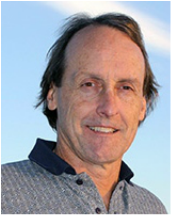
Tom Whillans
Tom has been a member of the U-Links Management Committee since its inception. Between 1989 and 2003 with John Wadland he created the Haliburton Bioregional Project -- a senior Trent University course that served as the foundation for U-Links. Tom has been a professor at Trent University since 1983, nine of those years as as Chair of the Environmental and Resource Science/Studies Program. He works on community-based engagement with wetlands and fisheries, ecological restoration, Great Lakes environmental management, and was involved for 10 years in the development of an Ecuadorian/Andean network on integrated watershed management.
Tom has been a member of the U-Links Management Committee since its inception. Between 1989 and 2003 with John Wadland he created the Haliburton Bioregional Project -- a senior Trent University course that served as the foundation for U-Links. Tom has been a professor at Trent University since 1983, nine of those years as as Chair of the Environmental and Resource Science/Studies Program. He works on community-based engagement with wetlands and fisheries, ecological restoration, Great Lakes environmental management, and was involved for 10 years in the development of an Ecuadorian/Andean network on integrated watershed management.
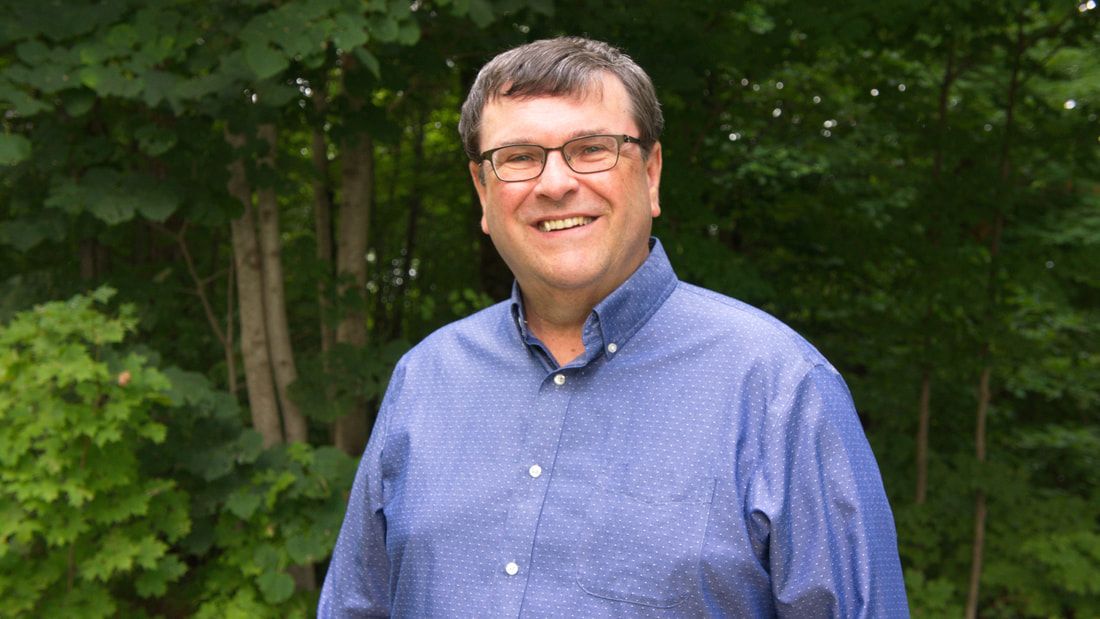
Bob Carter
Bob Carter is a Councilor in Minden Hills and lives on Lake Kashagawigamog. Bob serves on the Board of the Kawartha Lakes Haliburton Housing Corporation and chairs the Housing Task Force and Planning & Development Committee in Minden. Bob volunteers with HHHS as a driver and with Meals on Wheels. He is a Director of the Lake Kashagawigamog Organization. Bob graduated in Computer Science and Business Administration and studied at Concordia University and McGill University in Montreal. Most of his working career was spent as a Chief Information Officer for various multi-national organizations across a number of industries. Since moving to Minden, Bob’s focus has been on the health of our lakes and the creation of affordable housing in our community.
Bob Carter is a Councilor in Minden Hills and lives on Lake Kashagawigamog. Bob serves on the Board of the Kawartha Lakes Haliburton Housing Corporation and chairs the Housing Task Force and Planning & Development Committee in Minden. Bob volunteers with HHHS as a driver and with Meals on Wheels. He is a Director of the Lake Kashagawigamog Organization. Bob graduated in Computer Science and Business Administration and studied at Concordia University and McGill University in Montreal. Most of his working career was spent as a Chief Information Officer for various multi-national organizations across a number of industries. Since moving to Minden, Bob’s focus has been on the health of our lakes and the creation of affordable housing in our community.
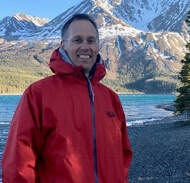
Eric Sager
Eric Sager is a professor in the Ecological Restoration Program, a jointly administered program between the School of Environmental and Natural Resource Sciences at Fleming College and the Trent School of the Environment. Eric is also an adjunct professor in the Environmental and Life Sciences Graduate program where his research interests are largely related to understanding the response of plant communities to environmental disturbances. Eric is also interested in management tools that can be used to mitigate the impacts of disturbance to ecosystems from a restoration or remediation perspective. He is quite involved with projects focused on the ecology and management of aquatic plants, restoration of tall- grass prairies, and revegetation of historical mine sites in the North. Eric has a strong belief in working on research questions that have applications beyond the academic community and have partnered with government agencies, citizen groups, private landowners, and environmental consultants. Eric is also the Manager of Trent's field station, the James McLean Oliver Ecological Centre, which is located in the heart of the Kawartha Lakes region on the shores of Pigeon Lake and is where he lives with his family.
Eric Sager is a professor in the Ecological Restoration Program, a jointly administered program between the School of Environmental and Natural Resource Sciences at Fleming College and the Trent School of the Environment. Eric is also an adjunct professor in the Environmental and Life Sciences Graduate program where his research interests are largely related to understanding the response of plant communities to environmental disturbances. Eric is also interested in management tools that can be used to mitigate the impacts of disturbance to ecosystems from a restoration or remediation perspective. He is quite involved with projects focused on the ecology and management of aquatic plants, restoration of tall- grass prairies, and revegetation of historical mine sites in the North. Eric has a strong belief in working on research questions that have applications beyond the academic community and have partnered with government agencies, citizen groups, private landowners, and environmental consultants. Eric is also the Manager of Trent's field station, the James McLean Oliver Ecological Centre, which is located in the heart of the Kawartha Lakes region on the shores of Pigeon Lake and is where he lives with his family.
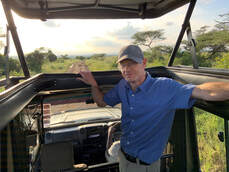
Shaun Watmough
Shaun Watmough is a full professor in the School of the Environment at Trent University. His research
focuses on the impacts of climate change and pollution on natural ecosystems such as forests, lakes, and
wetlands. For example, his work looks at the biogeochemistry of trace metals in forests and wetlands
and how climate change alters metal availability and mobility. He has worked extensively on issues
related to acid rain and factors delaying ecological recovery from reduced sulfur and nitrogen emissions.
Regionally he has worked on issues related to calcium decline in soils and lakes and potential mitigation
measures that may be implemented to improve forest health. He has been actively engaged with U-
Links for over 10 years and has supervised many student projects working with community partners in
both Haliburton and Muskoka.
Shaun Watmough is a full professor in the School of the Environment at Trent University. His research
focuses on the impacts of climate change and pollution on natural ecosystems such as forests, lakes, and
wetlands. For example, his work looks at the biogeochemistry of trace metals in forests and wetlands
and how climate change alters metal availability and mobility. He has worked extensively on issues
related to acid rain and factors delaying ecological recovery from reduced sulfur and nitrogen emissions.
Regionally he has worked on issues related to calcium decline in soils and lakes and potential mitigation
measures that may be implemented to improve forest health. He has been actively engaged with U-
Links for over 10 years and has supervised many student projects working with community partners in
both Haliburton and Muskoka.

Peter Dilworth
Mr. Peter Dilworth is a retired telecom executive with more than 30 years of experience working in finance and various corporate roles at Bell and Bell Aliant. In his last position, as VP – Finance and Chief Procurement Officer at Bell Aliant, he was accountable for Procurement and Supply Chain, Regulatory Finance, Real Estate, Payroll, Environment and Corporate Sustainability. He has significant background in Engineering Economics, costing and leading business case analysis. Peter graduated from Trent University in 1984 with an Honours B.Sc. in Economics and then went on to earn a M.A. from the University of Guelph. Peter has considerable board and governance experience. He just completed two terms on the Trent Board of Governors, where he chaired the Audit Committee and was Vice Chair of the Finance & Property Committee. He also served on the boards for Northwestel, the Bell Pensioners Group, and the Peterborough Innovation Cluster, where again he chaired their respective Audit Committees. Peter is a member of the Woodlands and Waterways Ecowatch Steering Committee as well as the President of his cottage association, the Miskwabi Area Community Association (MACA). Now that he is retired from his working career; Mr. Dilworth believes it is time to give back to our community.
Mr. Peter Dilworth is a retired telecom executive with more than 30 years of experience working in finance and various corporate roles at Bell and Bell Aliant. In his last position, as VP – Finance and Chief Procurement Officer at Bell Aliant, he was accountable for Procurement and Supply Chain, Regulatory Finance, Real Estate, Payroll, Environment and Corporate Sustainability. He has significant background in Engineering Economics, costing and leading business case analysis. Peter graduated from Trent University in 1984 with an Honours B.Sc. in Economics and then went on to earn a M.A. from the University of Guelph. Peter has considerable board and governance experience. He just completed two terms on the Trent Board of Governors, where he chaired the Audit Committee and was Vice Chair of the Finance & Property Committee. He also served on the boards for Northwestel, the Bell Pensioners Group, and the Peterborough Innovation Cluster, where again he chaired their respective Audit Committees. Peter is a member of the Woodlands and Waterways Ecowatch Steering Committee as well as the President of his cottage association, the Miskwabi Area Community Association (MACA). Now that he is retired from his working career; Mr. Dilworth believes it is time to give back to our community.

Ralph Bear Picture and biography coming soon!

Brendan Hickie
Picture and biography coming soon!
Picture and biography coming soon!

Sam Perri
Picture and biography coming soon!
Picture and biography coming soon!

Jeff Muirhead
Picture and biography coming soon!
Picture and biography coming soon!

Brendan Martin
Picture and biography coming soon!
Picture and biography coming soon!


